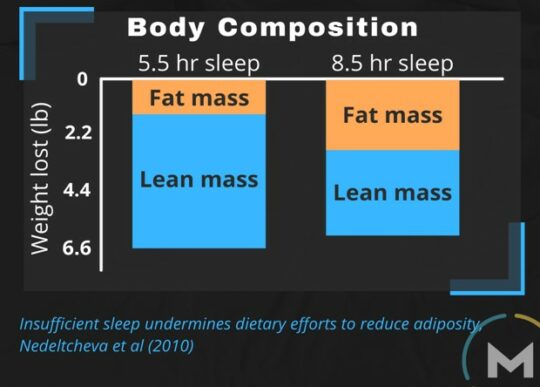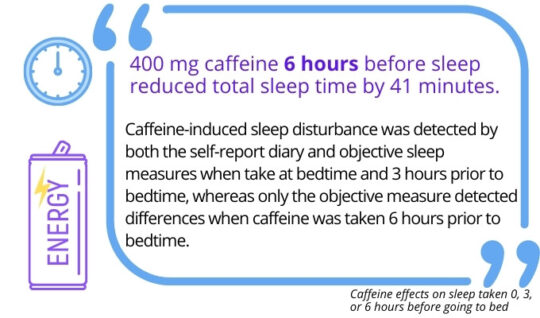These days, it’s no secret that sleep is important for almost every area of health, fitness, and performance. Sleep tech has become a multi-billion dollar business. There are endless trackers and new devices popping up all the time.
All of this has certainly increased general awareness of the need to get enough sleep.
…But after looking at sleep data from thousands of people who’ve connected their favorite wearables to Morpheus, it’s clear that there’s a big difference between knowing the path and walking the path.
Despite people knowing how important sleep is, it’s still often the biggest thing limiting their recovery. To understand why, it’s important to know how the two are connected.
Sleep and hormones
The reason sleep is so important when it comes to fitness is because when you’re asleep, your body is shifted into a parasympathetic state. This is particularly the case during the 3 stages of non-REM (NREM) sleep.
Remember, when your body is in a parasympathetic state, it’s driving energy into repairing and remodeling tissues to make them more fit. This process is inherently anabolic, meaning it’s building your body up rather than breaking it down.
The problem is that when you don’t get enough high-quality sleep, it does more than just deprive your body of recovery throughout the night. It impacts your recovery throughout the next day as well.
That’s because lack of sleep can throw off your circadian rhythm, increase your heart rate and decrease your HRV.
That means not only is your body spending fewer hours driving energy towards recovery, it’s shifted into a more catabolic state where it’s breaking tissues down.
You’ll see decreased levels of anabolic hormones—like growth hormone and testosterone—that drive recovery, and increased levels of catabolic hormones—like cortisol.
This is not a good recipe for recovery.
The end result is that you’re much more likely to lose muscle, particularly if you’re burning a lot of calories throughout the day and/or dieting to try and drop fat.
You can see the impact of sleep on body composition directly by looking at the results of a research study on the effects of sleep on dieting.
The researchers looked at total weight loss as well and where that weight loss came from, as well as how much sleep the participants got. They segmented people by those who averaged 5.5 hours of sleep and those that got at least 8.5 hours.

As you can see, there was very little difference in the total amount of total weight both groups lost. That’s not surprising because the caloric deficit was the same across everyone in the study.
There was a huge difference, however, in where that weight came from.
Those with less sleep ended up losing almost entirely muscle mass and very little fat. The group with more sleep still lost muscle, but it was less than half of the muscle lost by the low-sleep group.
The reason this happened is because insufficient sleep inherently decreases energy spent on recovery and muscle building and shifts it to breaking down muscle to use for energy. If you’re trying to improve your fitness, this is the exact opposite of what you want to happen.
The bottom line is that consistently undersleeping leads to negative changes in body composition, increases your risk of injury, and shifts your brain to want to eat more and move less.
Not good.
Fix your bedroom
If you live an average lifespan and get roughly 8 hours of sleep per night, you’ll spend about 229,961 hours in your bedroom. That’s a lot of time in one room and why it’s the most important room in your house.
If you haven’t optimized your bedroom for sleep, you’re missing a huge piece of the recovery puzzle. If you’re still sleeping on an old mattress, the same pillow you’ve had for 5 years, and your room is bright and loud, it’s time to do something about it.
Think about how much money you spend on your phone, computer, TV, etc. None of those things will improve your recovery to drive your health, fitness, and performance. Investing in your bedroom environment will.
Follow these four principles of bedroom design and your body will thank you for it:
- Make it dark. Use blackout blinds or use a high-quality face mask
- Make it quiet. Soundproof your room, and/or use a white noise machine
- Make it comfortable. Get the most comfortable bed and bedding that you can afford. It will pay off
- Make it cold. Sleeping hot is not a good recipe for recovery. Keep your room cool and sink into higher-quality sleep
Fix your caffeine habit
In moderation, and at the right times, caffeine is not necessarily a bad thing. It’s even been shown to have some performance-enhancing benefits in certain uses.
Where things often go wrong, however, is when moderation turns to excess and it’s used to get through the day. This usually translates into having some form of caffeinated drink too close to when you sleep.
Most people probably know that taking a stimulant right before bedtime, or even 3 hours before, isn’t great for sleep.
What most people don’t realize, however, is that taking caffeine 6 full hours away from when you plan to sleep can still have a dramatic impact on both how much sleep you get and the quality of that sleep.
Take a look at the results of the research below. 400mg of caffeine consumed 6 hours before bed reduced sleep by 41 minutes (Drake et al, 2013). And here’s the worst part: people in the study reported feeling no effects of the caffeine when they went to bed.

This is what makes caffeine and stimulants such a problem. It often doesn’t feel like they’re impacting your sleep, but they are.
To maximize your recovery, avoid caffeine and other stimulants as far away from bedtime as possible. You might not immediately notice it’s making a difference in your sleep, but over time, your results and your recovery score will show that it is.
Fix your training
Sleep and training can work together to maximize your recovery and drive results, or they can compound to have the opposite effect.
As we’ve talked about in previous lessons, stress, whether it’s physical or mental, shifts the body into a sympathetic, fight or flight state. If you chronically overload your body with stress, it can have a big impact on your ability to fall asleep.
Impaired sleep is one of the first signs that your body isn’t recovering fast enough from your training. Not getting enough sleep then slows down recovery even more and amplifies the stress of training.
If you don’t adjust your training and get your sleep back on track, it can quickly lead to a downward spiral in your recovery.
Fortunately, Morpheus can help you prevent this from happening.
First, if you’re using a sleep tracker, chances are, you can connect it to Morpheus in the tracking settings.
If you don’t see it listed in the settings, choose “Apple Health” (iPhone) or “Google Fit” (Android). Your device likely shares your sleep data with those platforms and Morpheus can import it from there.
![]()
This will help you see the connection between sleep, HRV, and recovery.
When sleep does drag down your recovery, keeping it from progressing into spiral by training smarter is easy with Morpheus:
- Train in the right zone. Because Morpheus adjusts your zones based on your recovery, you’ll be less likely to continue to overload your body if you stick to the guidelines in the last lesson on Morpheus heart rate zones.
- Be mindful of the impact of high intensity strength work. Strength work above 90% of your max puts the body under a ton of stress and drives it into a very sympathetic state. Any time you see your recovery below 80%, be mindful that this type of lifting will have an even bigger impact on your body. It doesn’t mean you can’tlift heavy, it just means it’s better for your recovery to limit the total number of reps.
- Incorporate rebound/recovery workouts on a consistent basis.One of the easiest ways to balance your training intensities is to incorporate at least 1 recovery workout for every high intensity training session you do. This simple strategy will greatly reduce the chances of your training having a negative impact on your sleep.
- Incorporate a cooldown at the end of every workout. Another simple way to prevent your training from keeping you up at night, particularly if you train in the evenings, is doing a cooldown at the end of each workout. You can follow the recovery workout guidelines in previous lessons and apply them to any time of training. This helps shift your body out of the sympathetic fight or flight state towards the recovery side.
Action step
To perform well throughout the rest of the challenge, you’re going to have to consistently get enough sleep. You’ll earn 10 points for each night you get more than 8 hours, 5 points for 7-8 hours, and you’ll lose 5 points if you sleep less than 6.
If getting enough sleep is difficult for you, start by fixing the most common problems listed above and tracking the results in Morpheus. Whatever your goals are, sleep is a key to reaching them. Putting in the work to fix your sleep is always worth the effort.
